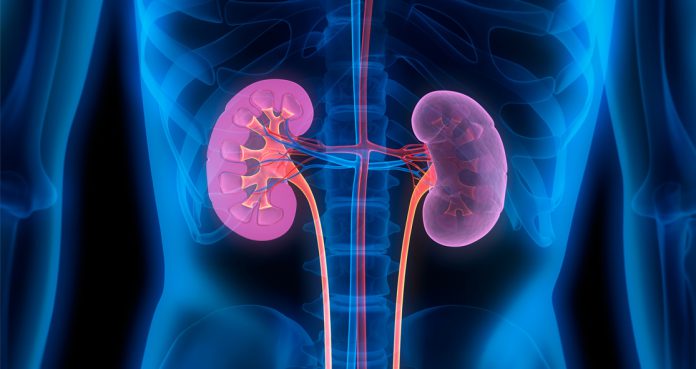At least one in 25 patients with chronic kidney disease (CKD) were hospitalized with severe confusion and other psychiatric symptoms after taking a common muscle relaxant called baclofen (Lioresal), according to a new study.
The study found that CKD patients who were prescribed a high dose of baclofen were more likely to be hospitalized for confusion and disorientation than those who were not prescribed the drug.
The study was published Saturday in the medical journal JAMA and was presented at the American Society of Nephrology conference in Washington, D.C.
Prof. Dr. Amit Garg from Western’s Schulich School of Medicine said, “When we looked at people with low kidney function (30 percent or less) who received a high dose of baclofen from their prescriber, approximately one in 25 were being admitted to hospital with severe confusion, typically over the next few days.”
“If you compare that to a group of people who had low kidney function who didn’t get baclofen, that risk is less than one in 500, so it’s quite a dramatic difference between the two groups,” he added.
The study was conducted because of the observations nephrologists have been noting at the London Health Sciences Centre.
Study co-author Dr. Peter Blake from Schulich Medicine & Dentistry said baclofen is a commonly prescribed muscle relaxant, which is also prescribed off-label for gastro-esophageal reflux disease, chronic alcoholism, and trigeminal neuralgia.
In 2016, physicians prescribed more than eight million prescriptions in the United States.
Dr. Blake said, “It came to my clinical attention dealing with patients with advanced kidney failure, that this drug that is generally thought to be relatively harmless, appeared to be the precipitant of severe confusion.”
“These are patients who had previously been very oriented, and they were suddenly extremely confused and when you took a history, we understood that they had recently started this drug, baclofen,” he added.
The study researchers looked at nearly 16,000 people in Ontario with CKD who started a new dose of baclofen from 2007 to 2018. There were two groups – one group received high dose baclofen, while the other received low dose baclofen. These groups were compared to more than 300,000 CKD patients who were not given the drug at all.
The team found that more than one percent of patients who took high dose baclofen and 0.42 percent who took low dose baclofen were hospitalized with cognitive-related symptoms.
Dr. Garg noted, “We found that in current practice most patients are getting a similar dose of baclofen no matter what the level their kidney function is. We also found that the risk for hospitalization for severe confusion was higher amongst patients who received doses that were higher versus doses that were lower.” The researchers hope that this study will better inform doctors and pharmacists about using baclofen in patients with CKD.





















